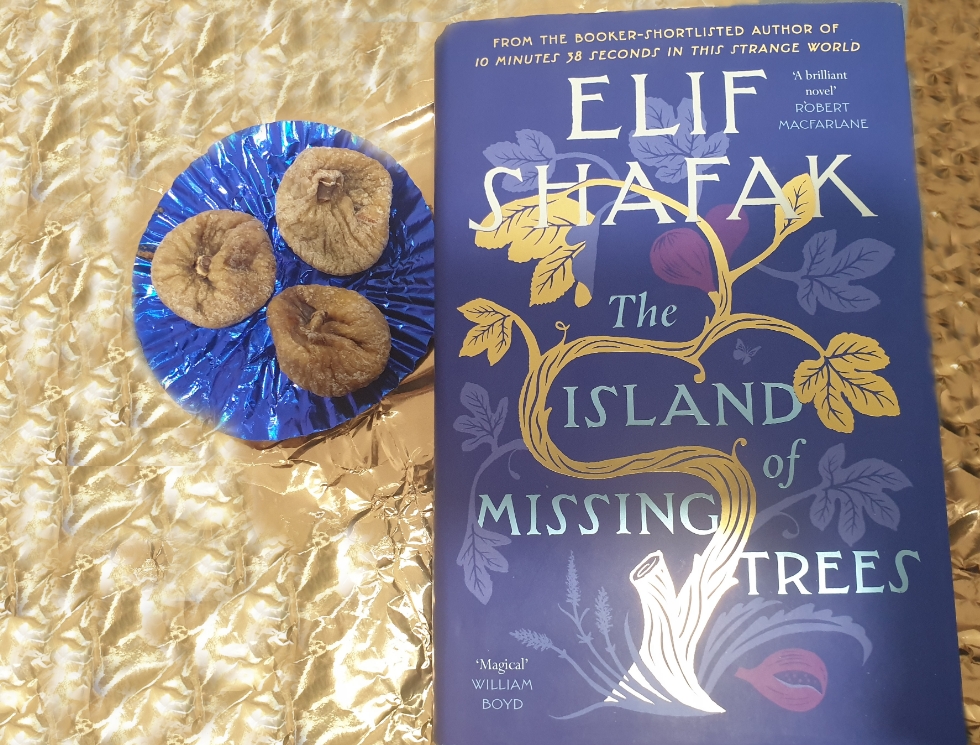Book Review: Elif Shafak’s The Island of Missing Trees Reviewed by A Cypriot

As a Cypriot, I have been wanting to talk about The Island of Missing Trees by Elif Shafak for a while. I think it’s fitting to talk about it now, two weeks before the winner of the Women’s Prize for Fiction is announced, which this book is shortlisted for.
It is a very delicate subject to write about a culture that is different from the one the writer is from. Shafak is not a Cypriot and when I was reading this book’s reviews before I read it, which was great, I constantly had this voice in my head reminding me that the reviewers are also not Cypriot and probably know as much about the country and its issues as they are told in the book. I am as Turkish as I am Cypriot; I’m very happy to see a Turkish voice being heard by the world, very happy that she chose to share our story with the world, as well and in general, Shafak is an amazing author. And yet, our story, the story of Cyprus, has been misunderstood, even politically manipulated so many times, even by our own people, that you can’t help worrying about it when you come across a book like this that you know is being read by many people and will be the base of those people’s understanding of your country and culture.
At times it felt like the Turkish Cypriot culture was written too Turkish than Cypriot. Especially the character of the aunt tended to remind me more of my aunts in Turkey than my aunts in Cyprus. Sometimes I found myself specifically pointing out what Turkish Cypriots would actually do instead. Although I had this with the actions of the aunt too, I felt that mostly about the food which is an important part of the culture and that I know Shafak gives high importance to in her work. However, I still think that Shafak skilfully introduces the similarities between the cultures of the two communities within the island and a very important problem that we call ‘The Cyprus Problem’ that is, in fact, the world’s problem, as the people keep seeing the differences between each other rather than the similarities which is the cause of all the problems of our world. I can tell that the details about the dispute, the history and the stories about the missing people are very well-researched – wouldn’t expect any less from Shafak – and even as a Cypriot, I found myself researching some stuff. It surrounds us so much; we hear about it so much from our elders that sometimes we assume we know enough. Or perhaps we prefer not to learn more about it because it’s just too painful, too recent. However, as painful as it was, I was glad to have been encouraged to learn more about certain things.
The Island of Missing Trees does not only tackle the Cypriot culture but the immigrant culture, generational trauma and national identity. It questions how the problems and roots of previous generations affect the next generations; the cultural identity of a generation raised in a country different from their origins. All that Defne goes through is a poignant representation of how one cannot run away from their past. She goes through the war in Cyprus, loses people she loved, loses a child and has to leave her country and family to be with the person she loves. On top of that, she tries to raise a kid far from where she grew up herself, everything she knows about childhood, trying to protect her from what she had been through. The effects of the mother’s struggles on the daughter, Ada, perfectly represent that the experiences of the parents become part of the children, as well, no matter how little knowledge they have of it. This is one of the biggest questions this book asks the reader: how far do our roots go? Can the trauma of one generation affect the rest? Can it be avoided?
The metaphor of the fig tree is beautiful and answers all of these questions. I’ve read a review saying that the fig tree having a pov seemed almost childish and I considered this a lot while I was reading the book. I think the view of the tree clarifies a lot of things for the reader that wouldn’t have been possible otherwise. I think the most powerful metaphor here is that the sapling from the original tree is still the same tree and carries all the memories of that tree. This perfectly captures how experiences are passed down through generations.
Ada’s character perfectly encapsulates that one cannot avoid their roots and that perhaps one shouldn’t. Ada feels lost with her identity because of her lack of knowledge of her origins and her family. She is curious and she tries to find out more all the time, as it is unavoidably a part of her.
In general, the text is educational in an enjoyable way and adorned with beautiful and clever metaphors, in addition to the moving storytelling. I cannot say it was perfect and I can still see that the writer is not a Cypriot through this text but I do want to thank Elif Shafak for using her platform to share our voices, as Cypriots and as the ones who had to leave home for a better future, as well as managing to have an objective view on the problem as it is a very hard topic for avoiding to take sides. This book has very powerful messages for the world, beyond The Cyprus Problem, and I highly recommend it.
Have a story to share? Contact us.
featherpen-blog@hotmail.com
Also, don't forget to follow us on Instagram!
@featherpenblog